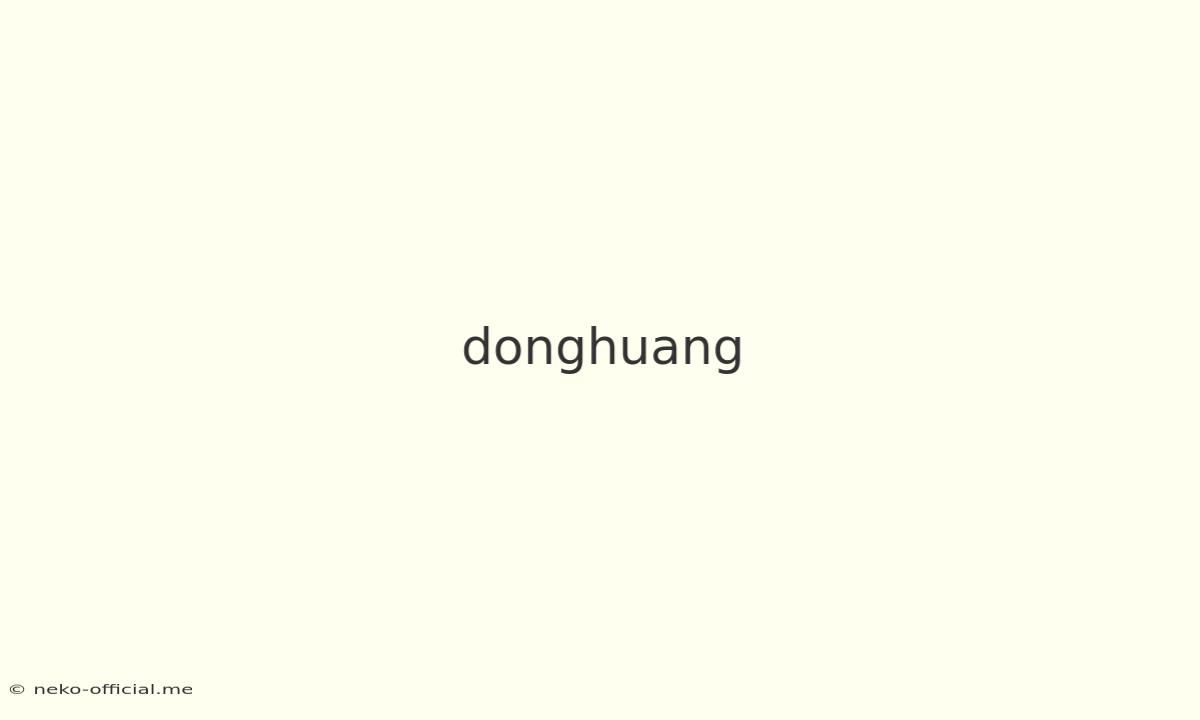Donghuang: A Glimpse into the Legendary Chinese Emperor
Donghuang, also known as Huangdi or The Yellow Emperor, is a legendary figure in Chinese mythology and history. He is revered as one of the Three Sovereigns and Five Emperors, a group of mythical rulers credited with establishing the foundations of Chinese civilization.
The Rise of a Legend
While Donghuang's historical existence is debated by scholars, his legend has permeated Chinese culture for centuries. He is often portrayed as a wise and benevolent ruler who taught the people agriculture, medicine, and writing.
Donghuang is credited with inventing various tools and technologies, including the compass, the calendar, and the writing system. He is also said to have led his people to victory in numerous wars, defeating hostile tribes and expanding the boundaries of the empire.
Legacy and Symbolism
Donghuang's legacy extends far beyond his mythical exploits. He is a symbol of Chinese identity, culture, and strength. His teachings and values, including harmony, virtue, and the pursuit of knowledge, have profoundly influenced Chinese philosophy, literature, and art.
The Yellow Emperor's Classic of Internal Medicine, attributed to Donghuang, is a foundational text in Traditional Chinese Medicine, emphasizing the importance of balance and harmony in maintaining health.
Donghuang's story continues to inspire and resonate with people throughout China and beyond. He serves as a reminder of the enduring power of myths and legends in shaping cultural identity and influencing generations to come.
Exploring Donghuang's Legend
While Donghuang may be a legendary figure, his story provides a valuable insight into ancient Chinese beliefs and values. By exploring his myths and tales, we can gain a deeper understanding of the foundations of Chinese culture and the enduring legacy of a powerful and influential figure.
